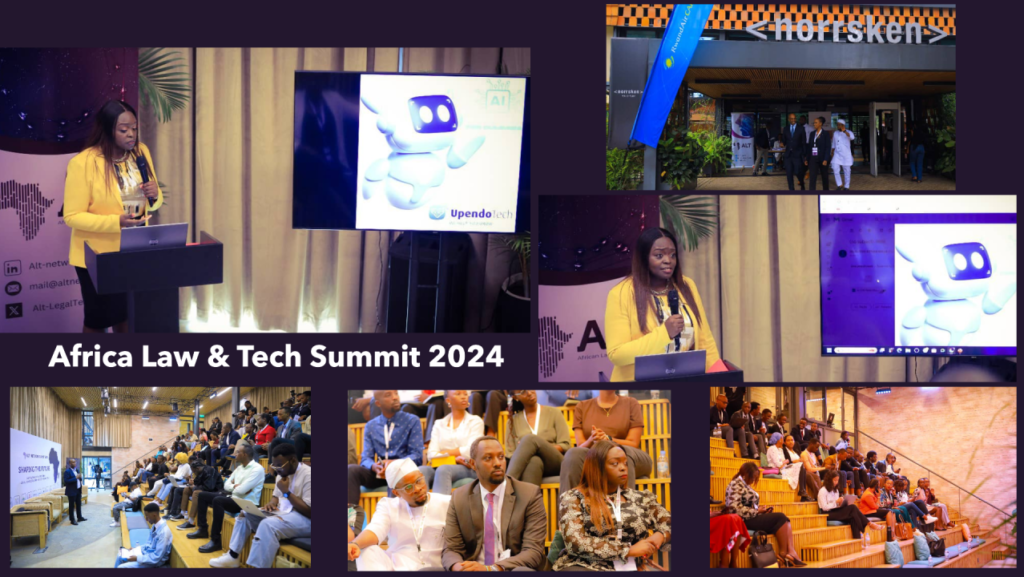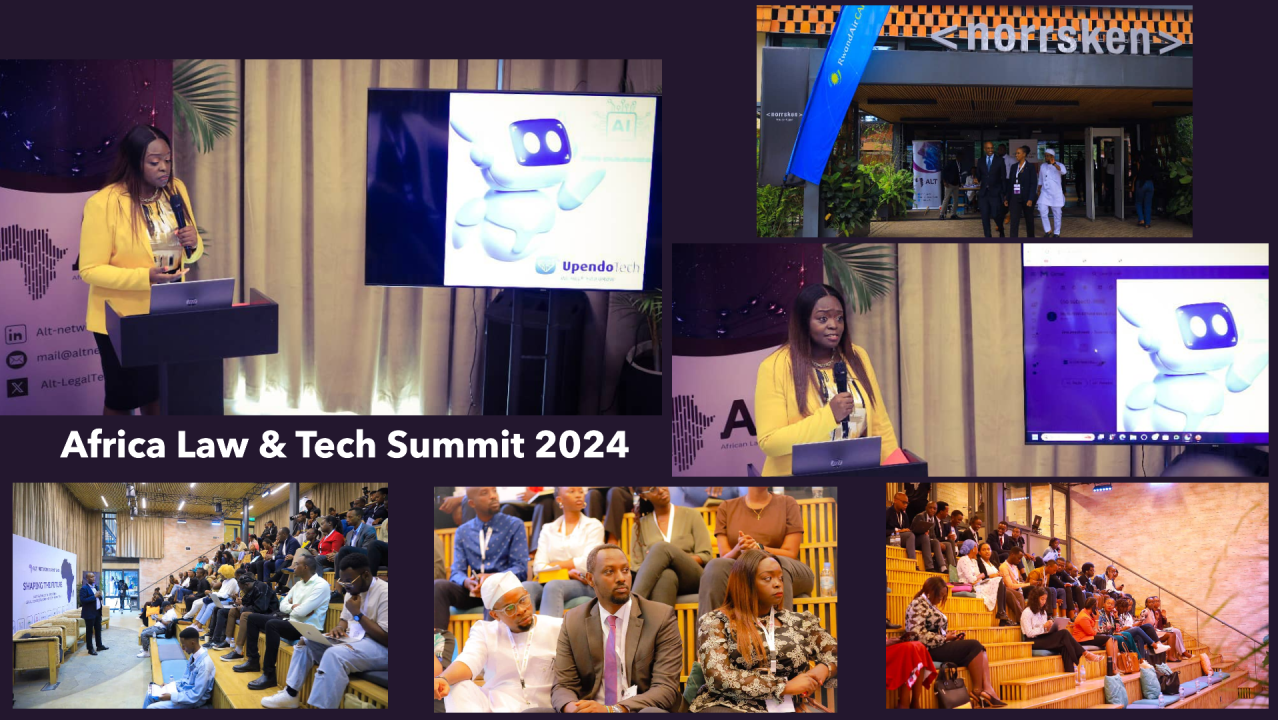Key Takeaways from the African Law & Tech Summit 2024

I recently participated in the African Law and Technology Summit 2024 held in Kigali, Rwanda. Day 1 commenced with an exploration of the AfCFTA’s digital trade potential and how legal design/legal-tech can enhance efficiency in legal services. We delved into building sustainable African startups and innovative regulatory models like the Datasphere Sandbox. Day 2 promised an immersive dive into balanced regulatory frameworks, blockchain use cases beyond cryptocurrencies, and navigating data protection for cross-border data flows under the AfCFTA. The investor panel on Day 3 provided a roadmap for overcoming IP, infrastructure, and capacity hurdles. However, the true highlight was the emphasis on fostering collaboration and eco-conscious growth through innovative partnerships.
The discussions around artificial intelligence (AI), SME and start-up growth, and sustainability were most interesting to me, as these facets are at the core of how Upendo Tech supports SMEs and the start-up ecosystem.
The AI masterclass delved into the transformative use cases of artificial intelligence and the pressing need for effective regulation in Africa. During the summit, I delivered a presentation on AI use cases and explored how AI powers Upendo Tech’s tech solution suite, such as its CRM system that drives business sustainability by collecting and analyzing customer data to deliver hyper-personalized experiences, create a single source of truth to enable data-driven decision-making, drive growth, and increase the quality of the customer experience and journey.
One key takeaway that I highlighted was the need to recognize our own unconscious incompetence – not knowing what we don’t know – when it comes to emerging and disruptive technologies like AI. As lawyers and regulators, we must urgently move from unconscious incompetence to conscious competence. Upskilling ourselves on AI’s technical nuances, socio-economic impacts, and governance complexities is crucial to crafting robust guidelines that promote homegrown innovation while safeguarding human rights.
The Summit also presented an insightful report from Tech Hive Advisory and the Center for Law & Innovation, which lays bare the legal landscape. While countries like Algeria, Benin, and Ghana have adopted national AI strategies, most lack specialized laws to tackle AI’s ethical risks, such as algorithmic bias and lack of transparency, which may result in privacy infringement – reminding us that responsible development is paramount. Even data protection authorities across Africa are just beginning to issue guidance and enforce existing laws for AI use cases.
The continent has taken notable steps, like the African Union’s data governance forum and roadmap for a unified continental AI strategy. However, more is needed – global cooperation, sector-specific sandboxes, and innovative co-regulation models aligning industry standards with formal laws.
The three-day knowledge sharing excursion left me feeling energized about Africa’s digital possibilities but also acknowledging the urgent need for lawyers, regulators, and businesses to enhance AI and technology literacy. Only by bridging this knowledge gap can we craft robust governance guidelines that unleash innovation while upholding ethics and human rights as anchors. The future belongs to those willing to learn, unlearn, and relearn constantly. It’s an exciting time as Africa shapes a future where technology and ethical oversight go hand-in-hand.

